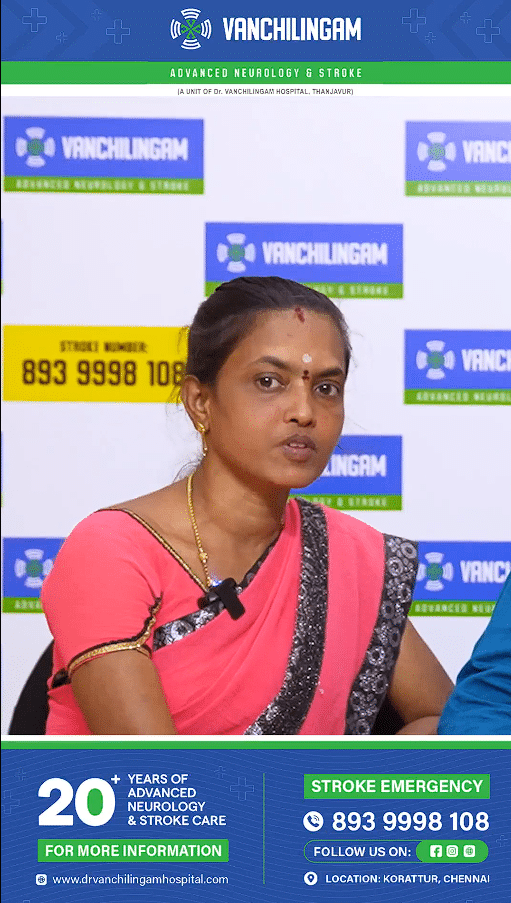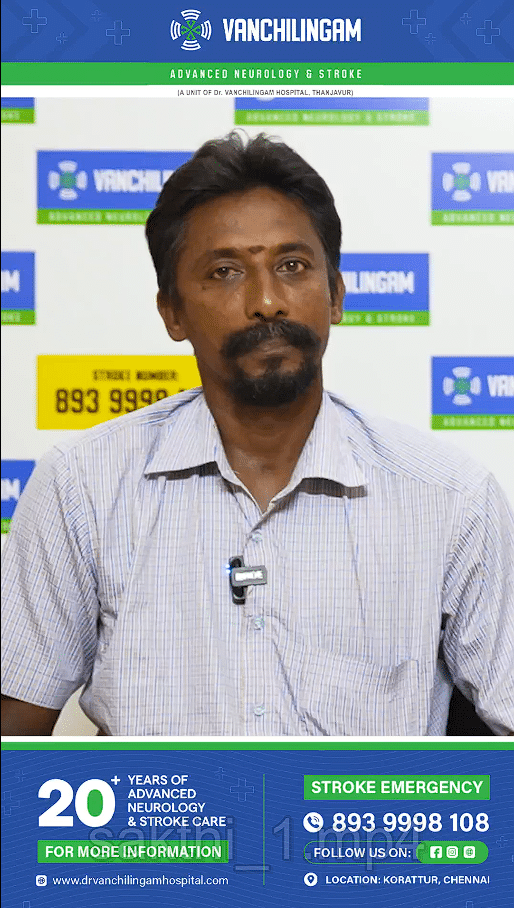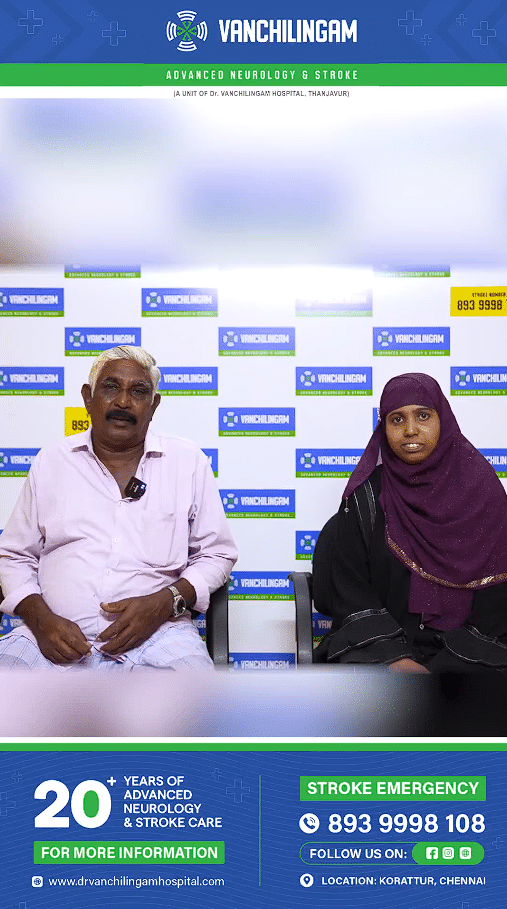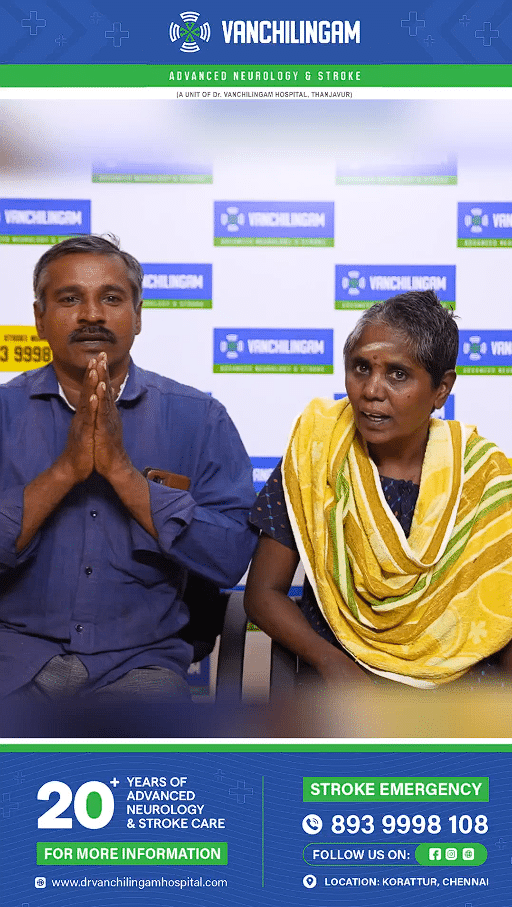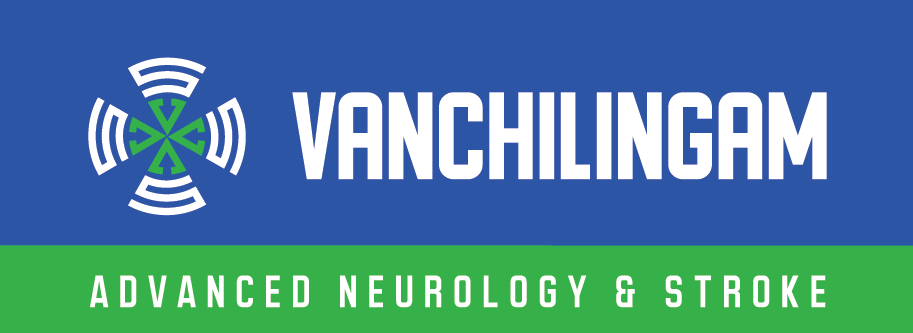Embolization of Brain AVMs and AV Fistulas: Safer Outcomes for Complex Conditions Precision Care for Vascular Abnormalities
- Minimally invasive embolization for AVMs and AV fistulas.
- Reduces rupture risks and improves long-term outcomes.
- Advanced imaging ensures accurate and targeted care.
- Multidisciplinary expertise for comprehensive treatment.
- Focused on enhancing neurological recovery and quality of life
Embolization of Brain AVMs and AV Fistulas: Precision Care for Safer Outcomes
Targeting abnormalities, preserving life—advanced embolization for AVMs and AV fistulas.
At Vanchilingam, we offer minimally invasive solutions for brain arteriovenous malformations (AVMs) and arteriovenous fistulas (AV fistulas). Our approach combines advanced technology, skilled expertise, and compassionate care to reduce risks and improve long-term outcomes for our patients.
Understanding Brain AVMs and AV Fistulas
Brain AVMs and AV fistulas are abnormal connections between arteries and veins in the brain that disrupt normal blood flow. These conditions increase the risk of bleeding, stroke, and other complications. Early detection and intervention are critical to prevent potentially life-threatening outcomes.
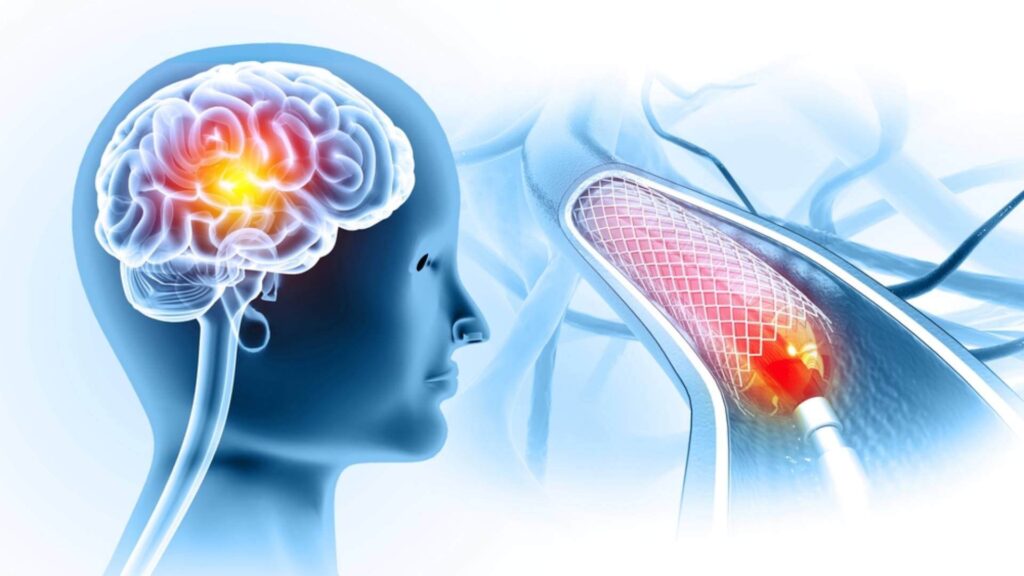
What is a Brain AVM?
- An AVM is a tangle of abnormal blood vessels where arteries directly connect to veins, bypassing capillaries.
- This direct connection can weaken blood vessel walls, increasing the risk of rupture and bleeding.
What is an AV Fistula?
- An AV fistula is an abnormal direct connection between an artery and a vein, often caused by trauma or congenital conditions.
- It can lead to high blood flow, putting pressure on surrounding vessels and tissues.
Symptoms to Watch For
While some AVMs and AV fistulas remain asymptomatic, others may present with:
- Sudden, severe headaches.
- Seizures or loss of consciousness.
- Vision problems or dizziness.
- Progressive neurological symptoms, such as weakness or numbness.
- Bleeding in the brain, leading to a medical emergency.
Causes and Risk Factors
The exact cause of AVMs is unknown, though they are often congenital. AV fistulas, on the other hand, may develop after trauma, surgery, or certain medical conditions. Key risk factors include:
- Genetics: Some congenital conditions increase susceptibility.
- Trauma: Head injuries can trigger the development of AV fistulas.
- Hypertension: High blood pressure can exacerbate these conditions.
The Embolization Advantage
Embolization is a minimally invasive procedure that block the abnormal connections within an AVM or AV fistula by injecting a blocking agent into the abnormal blood vessels. This approach:
- Reduces the risk of rupture and bleeding.
- Shrinks AVMs or closes fistulas before surgery or as standalone treatment.
- Improves overall outcomes with minimal recovery time.
How Embolization is Performed
At Vanchilingam Advanced Neurology and Stroke Care, embolization is performed with precision and care to ensure patient safety and effectiveness:
- Comprehensive Evaluation: Advanced imaging tools, such as angiography and MRI, map the abnormal blood vessels.
- Catheter Placement: A thin catheter is guided through a blood vessel to the site of the AVM or fistula.
- Embolic Agent Injection: Specialized materials, such as glue, coils, or liquid embolics, are injected to block the abnormal connections.
- Post-Procedure Monitoring: Patients are closely observed to ensure optimal recovery and plan for additional treatments if necessary.
Why Choose Vanchilingam for Embolization?
- Specialized Expertise: Our interventional neurologists are highly skilled in managing complex vascular conditions with advanced techniques.
- Cutting-Edge Facilities: Equipped with state-of-the-art biplane neuro cath labs for precise diagnostics and interventions.
- Holistic Care: We develop personalized treatment plans that address each patient’s unique condition and overall health.
- Collaborative Approach: Close coordination with neurosurgeons and other specialists for seamless care.
- Compassionate Support: We prioritize patient comfort and provide clear communication throughout the treatment journey.
Embolization is not just a procedure—it’s a path to regaining control, protecting your brain, and reclaiming the life you deserve. At Vanchilingam Advanced Neurology and Stroke Care, we are here to support you every step of the way, combining precision care with genuine compassion to deliver results that truly make a difference.
Your health and peace of mind are our priorities. Contact us today to learn how our advanced embolization treatments for AVMs and AV fistulas can help you and your loved ones move toward a safer, healthier future.
Meet the Specialists
Our team of dedicated specialists brings years of expertise and a passion for delivering personalized care.
Real Experiences, Real Results
Discover how Dr. Vanchilingam Advanced Neuro & Stroke Hospital has transformed the lives of our patients. Also hear our specialists talk about the services and solutions we offer for various neurological issues.




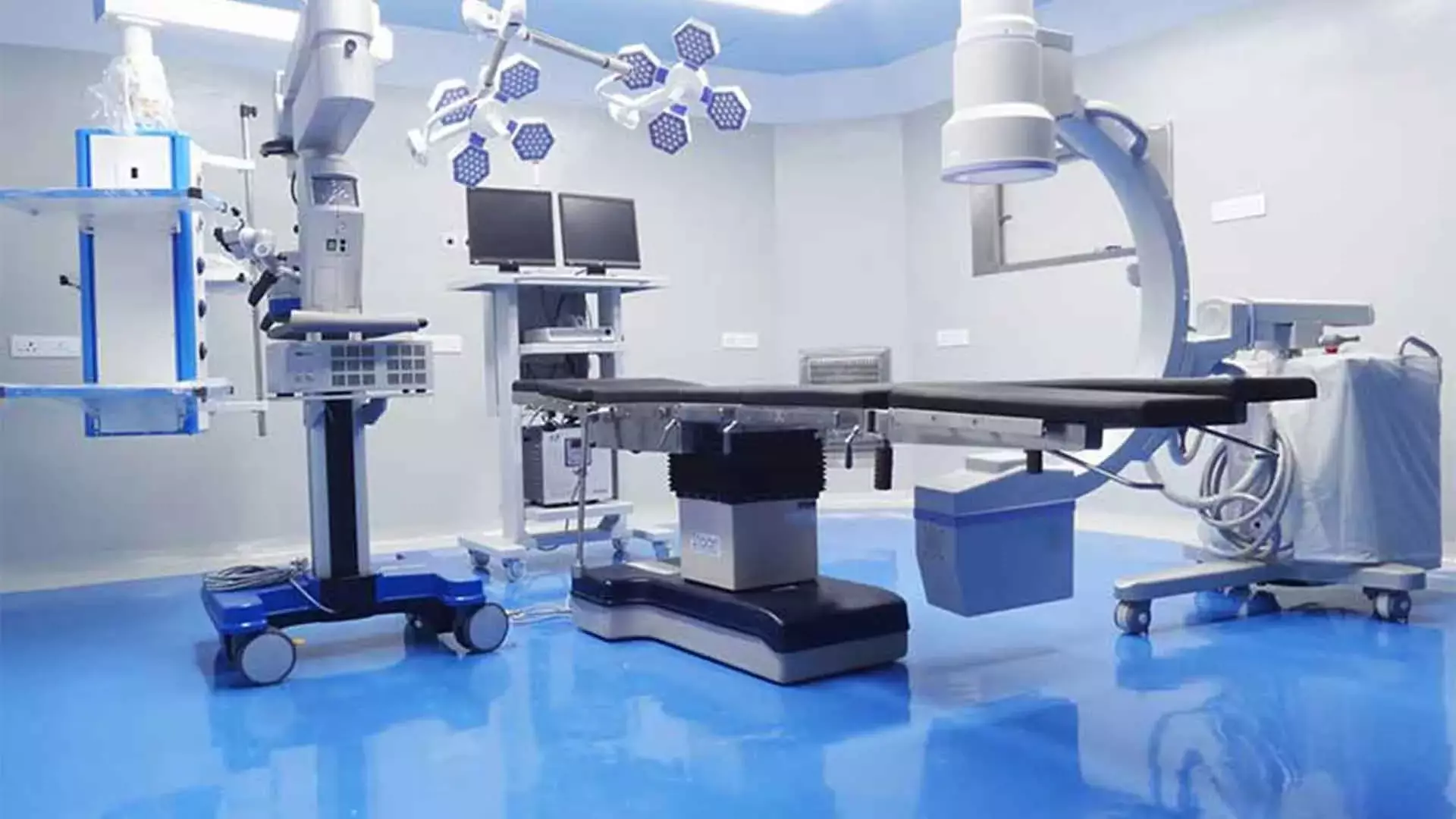
OUR SPECIALITY
Acute Stroke Unit
The Acute Stroke Unit is an acute neurological ward providing specialist services for people who have had a new suspected stroke. On the Acute Stroke Unit we provide: Thrombolysis treatment -treatment is started in the Emergency Department and you will have the rest of your Treatment and monitoring on the Acute Stroke Unit
OUR SPECIALITY
Advanced Neuro ICU
A neuro ICU is an Intensive Care Unit which is particularly devoted to a high – quality care of patients with the neurological problems that are life-threatening in nature. The neuro ICU of our hospital is a complete state of the art and a full-fledged one designed to provide almost all sorts of advanced neurological care to the normal patients as well as the patients in the emergency.
OUR SPECIALITY
Advanced Neuro Imaging
Our radiology department is a state of the art department with all the necessary infrastructure that is essential for effectively dealing with the neuro and neurosurgery emergencies at its best. The advanced neuroimaging techniques used by our doctors are as discussed below.
OUR SPECIALITY
Neuro interventional Cath Lab
A neuro-interventional Cath lab in a neurodiagnostic Centre is a specialized catheterization laboratory which has all the necessary diagnostic imaging equipment that is particularly used for the purpose of visualization of the arteries, veins and other vascular malformations of the brain and spinal cord.
OUR SPECIALITY
Neuro-Surgery Operating Room
The neurosurgery operating room of Dr.Vanchilingam Hospital, Neurosurgery Hospital is a fully functional and a state of art one that has the adequate infrastructure for effectively carrying out even the most complicated neuro surgeries with ease.
What is embolization for brain AVMs and AV fistulas?
Embolization is a minimally invasive procedure that blocks abnormal blood vessel connections in brain arteriovenous malformations (AVMs) and arteriovenous fistulas (AV fistulas). By injecting specialized materials into the abnormal vessels, embolization reduces rupture risks and improves long-term outcomes.
How do brain AVMs and AV fistulas affect health?
Brain AVMs and AV fistulas disrupt normal blood circulation by creating direct connections between arteries and veins, bypassing capillaries. This can lead to high blood pressure in fragile vessels, increasing the risk of rupture, bleeding, stroke, and neurological complications.
What symptoms indicate the presence of a brain AVM or AV fistula?
While some patients experience no symptoms, others may have:
- Sudden, severe headaches
- Seizures or loss of consciousness
- Vision disturbances or dizziness
- Progressive neurological deficits such as weakness or numbness
- Brain hemorrhage, which requires urgent medical attention
Who is at risk for developing brain AVMs and AV fistulas?
Brain AVMs are often congenital (present at birth), while AV fistulas may result from trauma, surgery, or other medical conditions. Key risk factors include genetics, head injuries, and high blood pressure.
What are the benefits of embolization for brain AVMs and AV fistulas?
- Reduces the risk of vessel rupture and brain hemorrhage
- Can be used as a standalone treatment or before surgery
- Shorter recovery time compared to traditional surgery
- Enhances long-term neurological outcomes
Is embolization safe, and what are the potential risks?
Embolization is a safe and effective procedure when performed by experienced specialists. However, like any medical procedure, it carries some risks, including vessel blockage in unintended areas or minor post-procedure discomfort. Our team ensures maximum precision to minimize complications.
How long does it take to recover from embolization?
Recovery time varies based on the complexity of the procedure and the patient’s overall health. Most patients can resume daily activities within a few days, though follow-up monitoring is essential for optimal recovery.
How can I schedule a consultation for embolization treatment?
To learn more about embolization for brain AVMs and AV fistulas, or to schedule a consultation, contact Vanchilingam Advanced Neurology and Stroke Care today through the website enquiry/appointment form or call us directly. Our team is dedicated to providing precise, compassionate care to ensure the best possible outcomes.










